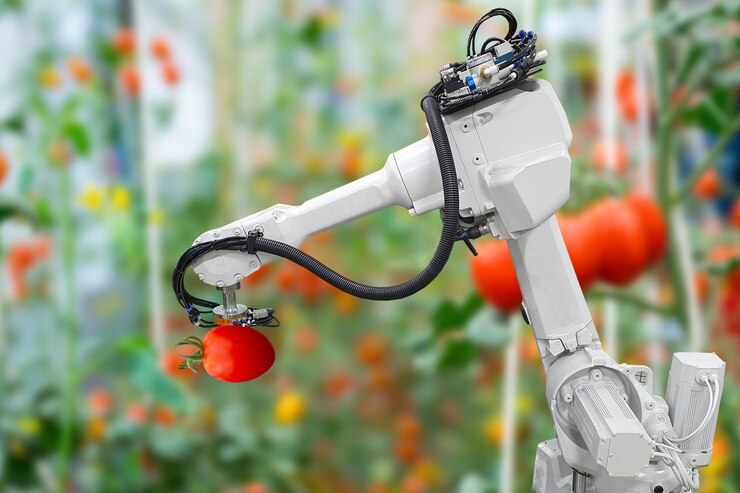Technology is transforming industries across the world, and agriculture is no exception. In South Africa, where farming plays a crucial role in food security and the economy, robots are becoming an essential part of agricultural operations. With challenges such as labor shortages, climate change, and the need for higher productivity, robotic technology is helping farmers improve efficiency and sustainability.
The Rise of Agricultural Robots
Robots in farming are not entirely new, but their adoption in South Africa is increasing rapidly. These high-tech machines are designed to perform various tasks, from planting and weeding to harvesting and monitoring crops. Advances in artificial intelligence (AI), machine learning, and automation have made robots smarter and more capable of handling complex agricultural tasks.
How Robots Are Transforming Farming
1. Precision Farming
Robots help farmers optimize their use of water, fertilizers, and pesticides. Drones equipped with sensors and AI-powered software can analyze soil health and crop conditions, allowing farmers to apply resources only where needed. This reduces waste and increases yields.
2. Automated Harvesting
Harvesting crops manually is time-consuming and labor-intensive. Robotic harvesters, such as self-driving tractors and fruit-picking robots, can work around the clock, ensuring that crops are collected at the right time while reducing dependence on seasonal workers.
3. Weed and Pest Control
Weeds and pests are a major challenge for farmers. Robots like laser weeders and autonomous sprayers can precisely target weeds and pests without affecting healthy crops. This minimizes chemical usage and helps maintain soil health.
4. Livestock Monitoring
For livestock farmers, robots and AI-powered cameras help monitor animal health, detect diseases early, and ensure efficient feeding. Automated milking systems are also becoming popular, allowing dairy farmers to increase milk production while improving animal welfare.
5. Soil and Climate Monitoring
Robotic sensors and drones provide real-time data on weather conditions, soil moisture, and nutrient levels. This data helps farmers make informed decisions about irrigation, planting times, and crop selection, ultimately leading to better productivity.
Challenges and Future Prospects
Despite the benefits, robotic farming in South Africa faces challenges such as high costs, lack of technical expertise, and the need for infrastructure improvements. However, as technology advances and becomes more affordable, more farmers are expected to adopt robotic solutions.
Government support, private sector investments, and collaborations with tech companies can accelerate the integration of robotics in agriculture. If implemented effectively, robotic farming can revolutionize the industry, making it more efficient, sustainable, and profitable.
Robots are reshaping agriculture in South Africa, offering solutions to some of the industry’s most pressing challenges. From improving productivity to promoting sustainability, these advanced machines are helping farmers embrace a new era of smart farming. While challenges remain, the future of agriculture in South Africa is increasingly dependent on innovation—and robots are at the heart of this transformation.
Join 'Farmers Mag' WhatsApp Channel
Get the latest Farming news and tips delivered straight to your WhatsApp
CLICK HERE TO JOIN






